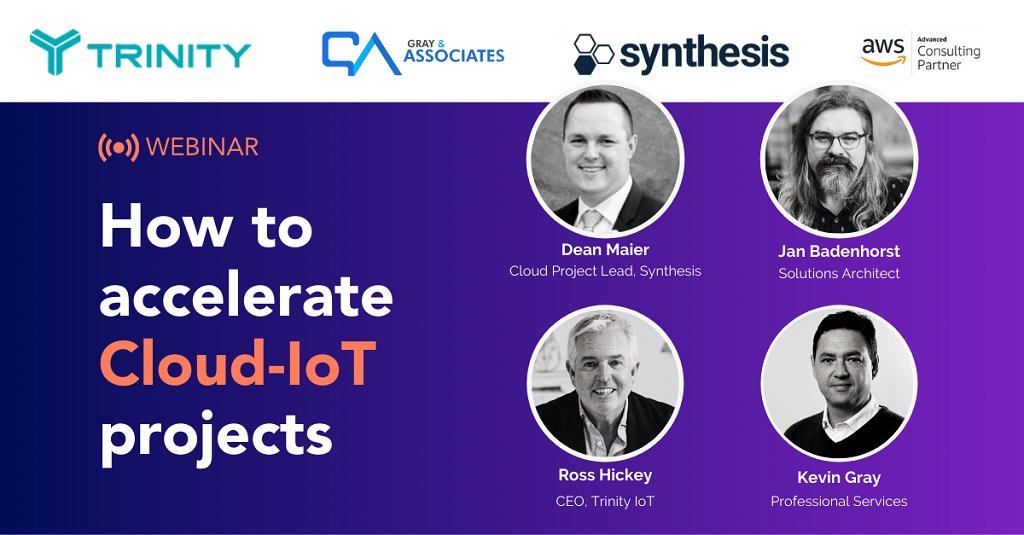The arrival of AWS in South Africa and the continuing evolution of the cloud have resulted in an enabling environment where businesses can embrace large-scale Internet of Things (IoT) projects. These can rapidly scale to meet any customer demand. This was one of the central themes discussed at the recent Trinity IoT Webinar held early in September. Panellists discussed the opportunities of IoT in a cloud-driven world.
Ross Hickey, Founder and CEO of Trinity IoT, started proceedings by examining some of the changes in the local IoT landscape and how these have positively disrupted businesses.
“We’ve walked a long journey (25 years) with IoT, and what we’ve seen is that historically IoT entailed a DIY approach where an entire supporting infrastructure had to be built in-house to support a specific business case. But with AWS arriving in the country, companies like Trinity IoT can now provide customers with on-demand cloud services and suddenly owning the whole stack is no longer necessary. In fact, it’s ill advised,” said Hickey.
Dean Maier, Cloud Project Lead at Advanced AWS Partner Synthesis, agreed that this international investment has been a significant milestone for the cloud in the country.
“Having AWS in our region benefits IoT massively. It reduces latency resulting in customers receiving data faster and reacting to events quicker than before. And from a platform perspective, more AWS services are becoming available in the region, which means companies can adopt modern technology practices and rapidly test and deploy IoT services,” added Maier.
So, while the cloud is not a new concept, the launch of the AWS region in South Africa allows businesses to capitalise on even more on-demand cloud computing resources. Not to mention, these advantages come with lower upfront investment. Still, while the cloud makes everything easier, getting it right is difficult. And this is where companies like Trinity IoT steps in.
“Through our Connect platform, we have identified the common issues companies have been facing in building and deploying IoT services. Instead of having them try to develop in-house IT expertise, build connectivity infrastructure, develop bespoke software, and grow the operational layer, they can partner with us to do everything through Connect,” said Hickey.
This response is echoed by Maier who said that businesses need to harness the resources available to them, so that they can focus on their core business.
“This is where leveraging the AWS partner network becomes important. AWS has introduced validated competencies in specific business areas to help companies accelerate their time to market. For their part, AWS is incentivising customers to adopt cloud solutions. Business wants to focus more on innovation and less on managing their own servers,” said Maier.
Every IoT project comes down to time to market, providing a return on investment, and the quality of data the business pulls.
“If a company tries to do everything themselves, it can take 24 months to deliver a successful IoT project at scale. By working with a trusted cloud partner, this drops down to six months. Many businesses think IoT is purely about the application layer. But this is only where the users sit. They also need to consider what lies beneath the surface like cloud infrastructure, networking, remote management, SIMs, and devices. If any of these are compromised, the quality of data and effectiveness of IoT projects are significantly compromised,” said Hickey.
Ultimately, the environment is now such that companies can build business applications at scale to meet the demands of this new cloud IoT world.




